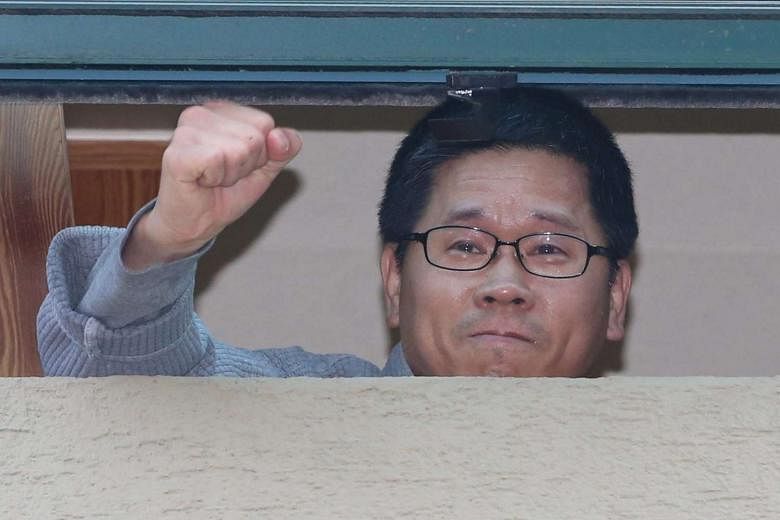SEOUL (AFP) - A fugitive South Korean labour leader, holed up in a major Buddhist temple under siege by hundreds of police, has agreed to turn himself in, his labour union said on Thursday (Dec 10).
Mr Han Sang Gyun, the head of the Korean Confederation of Trade Unions (KCTU), sought sanctuary in the Jogye Temple in downtown Seoul following a massive anti-government demonstration on Nov 14.
Police have an arrest warrant for him, accusing him of inciting violence during the protest, and had initially given him an ultimatum to surrender by 4pm (3pm Singapore time) on Wednesday (Dec 9).
But a police threat to storm the temple and remove him by force was postponed after the leader of the Jogye Order - South Korea's leading Buddhist organisation - appealed for more time to resolve the stand-off.
On Thursday morning, the KCTU put out a statement saying the labour leader would surrender to police after holding a press conference in the temple.
The Jogye Order, which has millions of followers, has been mediating with the government ever since Mr Han took refuge in the temple.
One monk told AFP that the activist had been on hunger strike for the past 11 days, taking only a little water and some salt.
As Wednesday's original deadline neared, monks and scores of young Buddhist followers had formed a human barricade at the entrance to the temple to block police access.
The Jogye Order had previously warned that any police action would be seen as an act of religious persecution.
"If the police raid the temple, it... will be tantamount to a state clampdown on the Jogye Order and on the whole Buddhist movement in South Korea," it said in a statement.
South Korean religious venues have a long history of providing refuge for political activists, most notably in the 1980s when many young pro-democracy activists who were on the run from police sought sanctuary in Catholic churches.
Although there is no legal reason preventing the police from entering such venues, they have traditionally opted not to do so for fear of triggering a public backlash.
When police raided the Jogye Temple in 2002 to bring out seven labour activists, the move sparked widespread criticism.

